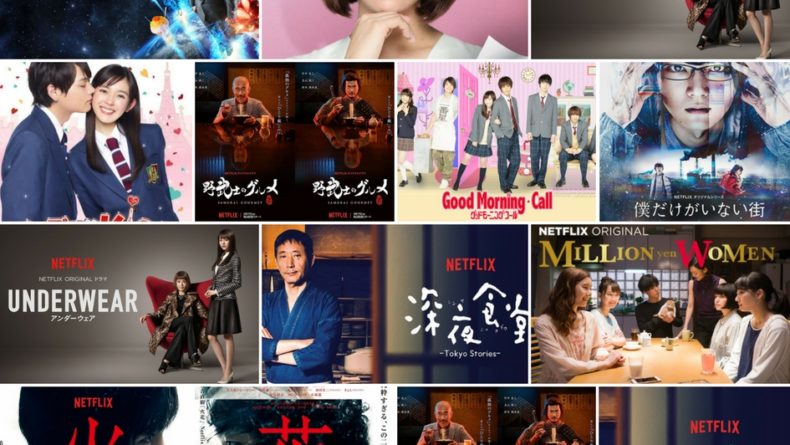An Adoptive, Foster Parent’s Take On Award-Winning Movie ‘Shoplifters’
What Is Family? (Warning: Spoilers!)
As I walked out of the theater, I kept thinking …
A few days ago, my husband took me to a matinee to see Shoplifters. We were both spellbound by this award-winning movie, which while asking many questions, doesn’t attempt to answer them. Instead, the director Hirokazu Kore-eda, asks the audience to make their own judgements, likely with more compassion than they might have done had they not known the characters’ back stories. If you haven’t seen it yet, and are planning to, you might want to stop reading this and come back to this article later. While I won’t be giving the whole story away, I will be referring to some scenes which were key for me.
In this movie, social outcasts create a family by taking children away from abusive situations and although their values about property or money fall outside the law, their love for each other, while imperfect, is strong. Much of their time is spent inside a very small, dilapidated old room, cozying up with each other, eating, talking, and laughing. For all their poverty, they seem rich in happiness (however, sad histories are frequently alluded to).
Although my family is thoroughly law-abiding, I could find a few resonances with my own situation. For one, when the “son” suddenly has a “sister,” he tells his presumptive father he would have preferred a brother. The “son” also, like my foster daughter, doesn’t consider the people caring for him to be his parents and can’t call them “mother” and “father.” I left the theatre pondering what I felt to be the film’s two key questions, which I will write about here.
What is a family?
One of the questions this movie asks is “What is a family?” Are bonds formed only by blood or also by love? In the film, the “family” is made up of people using the same surname, but not related by blood. Yet, their bonds are strong and loving. The film consists primarily of scenes of all members truly caring for one another and enjoying one another’s company. The joy they took in one another moved me to tears.
Are bonds formed only by blood or also by love?
The issue of blood versus non-blood family is an important one in Japan, where blood is decidedly thicker than water, even to the point where many birth parents may institutionalize or foster out their children until they reach adulthood, yet keep them on their family registry. By not giving these children up for adoption and keeping them institutionalized, they are denying their children the right to a better life with parents perhaps more suited to caring for them. However, the social welfare system, while slowly changing, is still set up to honor the birth parents’ wishes before the welfare of their children. This movie confirmed for me that what I and other people are doing, by fostering and adopting, is right, although what we do is not openly discussed or widely done in Japan.
 © Photo by GAGA Corporation
© Photo by GAGA Corporation
Do blood and DNA make you love — and care — more?
The presumptive mother, early on in the film, is not sure she wants the child the presumptive father has rescued from an abusive situation. However, once she witnesses the degree of violence the little girl has been experiencing for herself, she changes her mind. In one very bittersweet scene, she compares the burn scars on her arms with those of the girl’s and in a later scene, reassures the child that it’s not her fault she was hurt and that love should not be expressed with violence, but with embraces. That was an excellent example of parenting, in my opinion.
I was particularly struck by the scene in which the “mother,” while being interrogated by the police asks, “Just because a woman gives birth to a baby, does that qualify her to be a mother?”
[T]he social welfare system, while slowly changing, is still set up to honor the birth parents’ wishes before the welfare of their children.
It is, of course, good for birth parents to raise their own children, if they can do it. But, is it always in the best interests for children to be raised by their birth parents? The number of children in Japan being abused has been increasing year by year. I felt that this movie was asking if having a blanket policy for these children is truly the best.
The portrayal of well-meaning social workers who have no idea of the realities of abused children was also striking to me. Again, we see where society sees one side of the story — in this case, there is an accusation that children were being “stolen” from their birth families. Yet, the people who took them were taking them out of harm’s way. While I can’t condone their methods, I can applaud their efficiency. The middleman of the social welfare system is removed and the process of fostering children in need is expedited. While in reality, these very imperfect “parents” would hardly qualify to adopt or foster children, they showed the children an abundance of love and tried to give them a better life, albeit on the periphery of society.
The longer children stay in inadequate care, the harder it is for them to fit into society.
From what I have seen, there have been times when the social welfare system (all across the globe) has been slow or unhelpful. I have personally witnessed at a foster family retreat I attended, one foster mother, in tears, strongly begging the social workers to work more quickly to get children out of institutions and into foster families. The longer children stay in inadequate care, the harder it is for them to fit into society.
And so, although this movie is a fiction, I felt it was firmly grounded in reality and will do a lot of good in Japan by revealing both the plight of many families living in poverty as well as a growing number of children being raised in abusive circumstances. By all means, do see this film.
Shoplifters is currently in theaters across the country.
















Leave a Reply